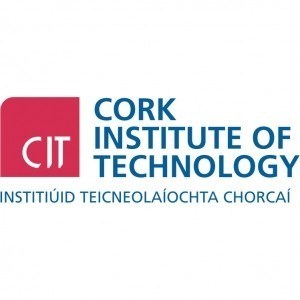The CIT Crawford College of Art & Design offers an exciting post-graduate course in Art Therapy. The College is the first in Ireland to provide professional training in Art Therapy. Successful graduates receive the Master of Arts in Art Therapy, which is a recognised qualification for Art Therapy practice.
The course is available on a full time basis over two years (2 college days & 2 clinical placements days) or part time or ACCS mode over 3 years (1 college day & 1 clinical placement day).
In either case, students must complete all the mandatory modules.
To be eligible for the course, candidates normally require an honours degree in Art & Design or Fine Art, but teachers and honours graduates from the medical and social sciences (nurses, social workers and psychologists, for example), are also considered. A small number of non-graduates are also considered if they have extensive prior clinical experience. All candidates must present a strong portfolio of personal art work and have a minimum of one years clinical experience within a relevant area.
In addition, eligible students may pursue an MA by research in the fields of Art Therapy or Community Arts.
The Bachelor of Arts in Art Therapy at Cork Institute of Technology offers a comprehensive exploration of the transformative power of art in promoting mental health and well-being. This innovative programme is designed to equip students with the theoretical knowledge and practical skills necessary for a career in art therapy, a growing field within mental health services. Throughout the course, students will develop a deep understanding of psychological theories, counselling techniques, and creative arts methodologies, all integrated within a supportive learning environment. The programme emphasizes experiential learning, encouraging students to engage in practical art-making activities, supervised clinical placements, and reflective practice. Core modules include foundations of psychology, introduction to art therapy, developmental psychology, expressive arts intervention, and research methods in health sciences. Students will also explore specialised topics such as trauma-informed care, working with diverse populations, and ethical considerations in therapy. The curriculum is designed to foster critical thinking, cultural awareness, and interpersonal skills essential for effective therapeutic practice. In addition to academic coursework, students will participate in supervised placements in various clinical and community settings, providing valuable hands-on experience working with individuals facing mental health challenges, neurodiverse populations, and others requiring therapeutic intervention. The programme aims to produce graduates who are confident, compassionate, and ethically responsible practitioners capable of making a positive impact on individuals and communities through art therapy. Upon graduation, students will be eligible to apply for further professional training and accreditation in art therapy, enhancing their career prospects within the health and social care sectors. This dynamic field offers numerous opportunities for personal and professional development, making the Cork Institute of Technology’s Art Therapy programme an excellent choice for those passionate about combining creativity and care to improve lives.
Programme Requirements:
Applicants to the Art Therapy undergraduate degree programme at the Cork Institute of Technology are typically required to have completed the Irish Leaving Certificate or an equivalent qualification recognized by the Higher Education Authority. A minimum overall grade of Grade C or above in five subjects, including English or Irish and Mathematics, is generally expected. For applicants whose secondary education was completed outside Ireland, equivalent qualifications that demonstrate proficiency in English and relevant academic standards are necessary.
In addition to academic prerequisites, relevant work or voluntary experience in art, health, or social care contexts can strengthen an application. While not always mandatory, demonstrating a commitment to working with diverse populations through relevant experience can improve admission prospects.
International applicants must meet the English language proficiency requirements, generally evidenced by a minimum score of 6.0 in IELTS or equivalent testing standards. Applications are typically processed through the Central Applications Office (CAO), and all documentation must be submitted by the specified deadline.
Applicants may be required to participate in an interview or submit a portfolio of artwork as part of the selection process, assessing their motivation, creativity, and suitability for the discipline. The programme seeks students with strong interpersonal skills, sensitivity, and an interest in working with individuals facing psychological, emotional, or physical challenges.
Completion of the programme requires satisfying all coursework modules, including practical placements, theoretical learning, and research projects. Students are expected to develop both clinical and artistic competencies, adhering to professional ethical standards in the practice of art therapy.
Overall, the entrance criteria focus not only on academic achievement but also on demonstrated interest and aptitude for art therapy practice, with a holistic assessment process aimed at selecting candidates who show potential to contribute positively to the field of mental health and well-being through artistic methods.
Funding options for the Art Therapy programme at the Cork Institute of Technology include a variety of financial supports available to both domestic and international students. Irish students may be eligible for state-funded grants such as the Free Fees Scheme, which covers tuition fees for eligible students who meet specific residency and academic criteria. Additionally, students can apply for maintenance grants or student loans through the Student Loans Company (SLC) to assist with living expenses and other costs while studying. International students are often required to fund their studies through personal savings, sponsorship, or scholarships; however, Cork Institute of Technology offers a limited number of scholarships and bursaries for international students based on academic merit and specific eligibility criteria. Students are encouraged to explore external funding sources such as government or private sponsorship schemes, European funding programs, or charitable organizations that provide financial assistance for arts and health-related fields. Part-time work opportunities on or near campus enable students to supplement their income during their studies. The university also provides financial advice and guidance through its Student Services, helping students to identify suitable funding options and manage their finances effectively. It is important for prospective students to check the latest information on funding and scholarship opportunities on the official Cork Institute of Technology website or contact the admissions office directly, as eligibility criteria and availability may change annually. Overall, while the programme does not have dedicated tuition fee waivers specific to Art Therapy, students can access a range of financial aids and support systems designed to make postgraduate study more accessible. Early planning and application for these funding sources are recommended to ensure financial stability throughout the duration of the programme.
The Bachelor of Arts in Art Therapy at Cork Institute of Technology is a comprehensive undergraduate program designed to provide students with the skills and knowledge necessary to pursue a career in art therapy. This programme emphasizes the integration of creative arts and psychological principles to promote mental health and well-being. Throughout the course, students engage in a diverse range of modules covering theoretical and practical aspects of art therapy, including psychology, counselling, art techniques, developmental studies, and ethical considerations.
The curriculum is structured to develop both creative skills and therapeutic competencies, enabling students to facilitate healing and personal growth through artistic expression. Practical placements are an integral part of the program, providing students with real-world experience in clinical, community, or educational settings. This applied component ensures that graduates are well-prepared to enter the workforce as professional art therapists.
Students also have access to state-of-the-art facilities and are mentored by experienced faculty members who are active practitioners in the field. The program encourages interdisciplinary collaboration, offering opportunities for engagement with other healthcare and social care disciplines. Upon completing this degree, graduates are equipped to work with diverse populations, including children, adolescents, adults, and the elderly, in hospitals, mental health facilities, schools, and community organizations.
The Art Therapy program is aligned with national and international standards for health and social care education, enhancing employability and professional recognition. Furthermore, the qualification offers pathways to postgraduate study for those wishing to specialize further or undertake research in art therapy and related fields. Cork Institute of Technology maintains strong links with industry partners and professional bodies, ensuring the curriculum remains relevant and responsive to developments in mental health and therapeutic practices.
Overall, the Bachelor of Arts in Art Therapy at Cork Institute of Technology aims to cultivate compassionate, skilled professionals who utilize creative arts as a means of fostering psychological resilience and social inclusion. The program is ideal for individuals passionate about art, psychology, and helping others, combining theoretical learning with practical application to make a meaningful impact in the field of mental health and wellbeing.










